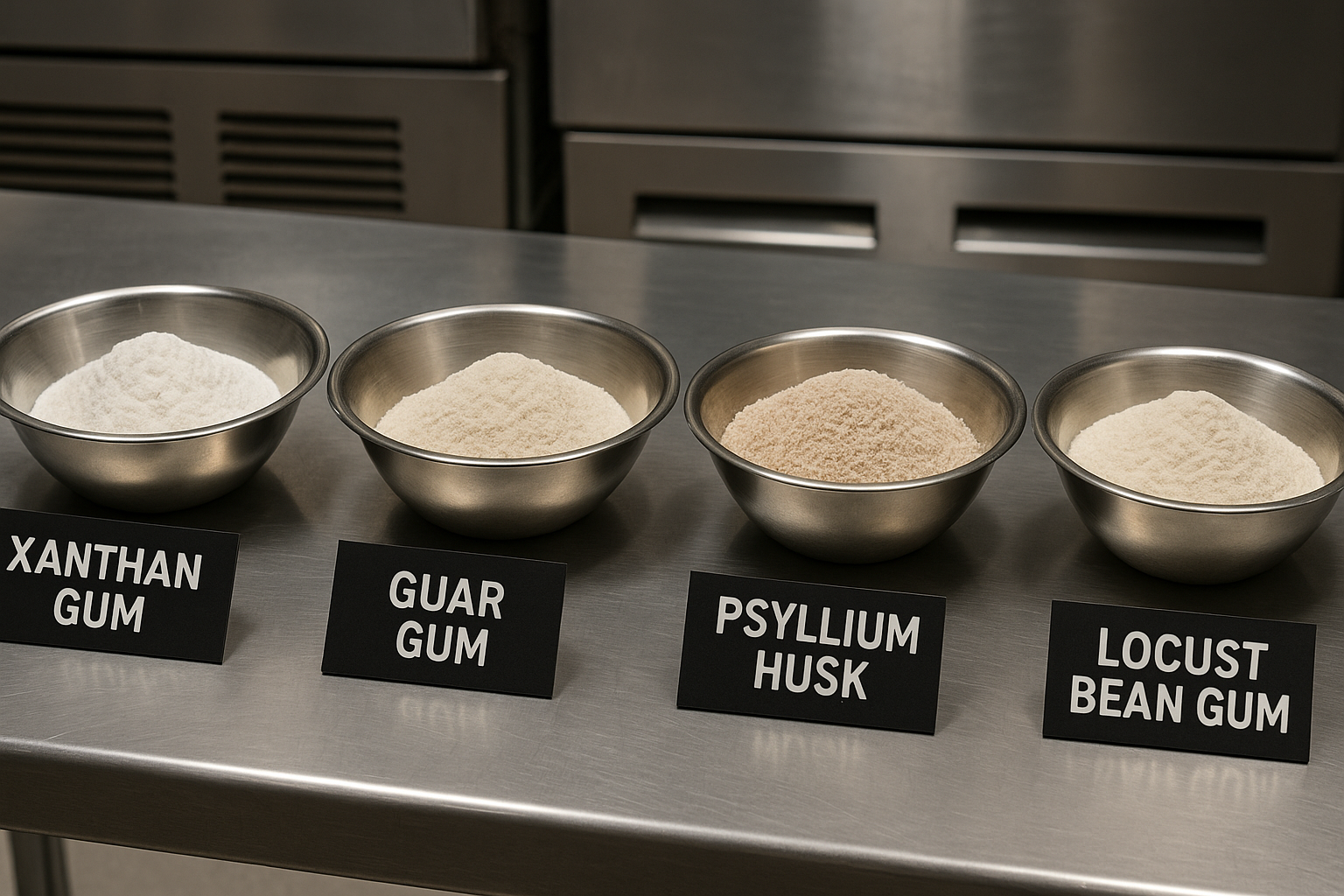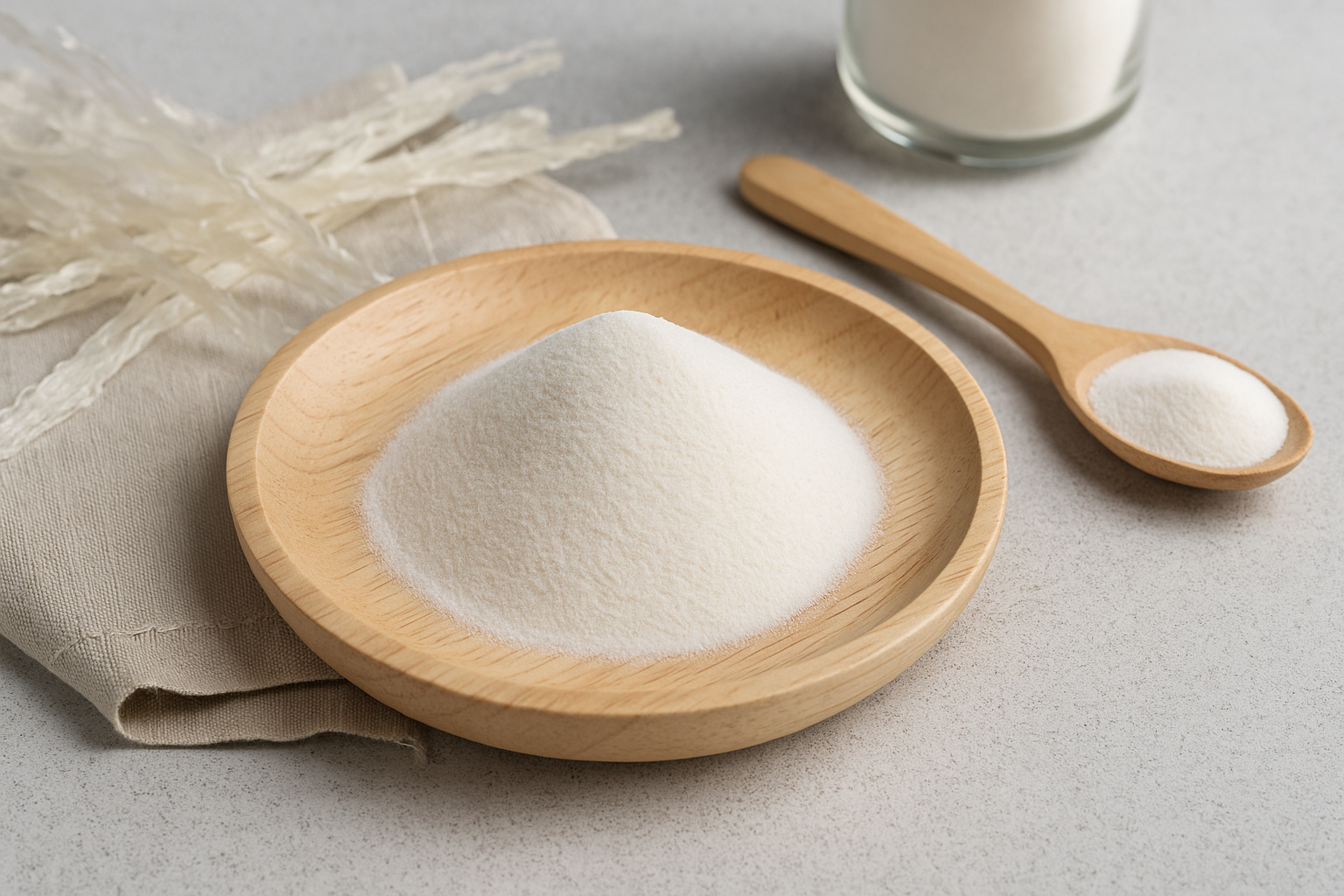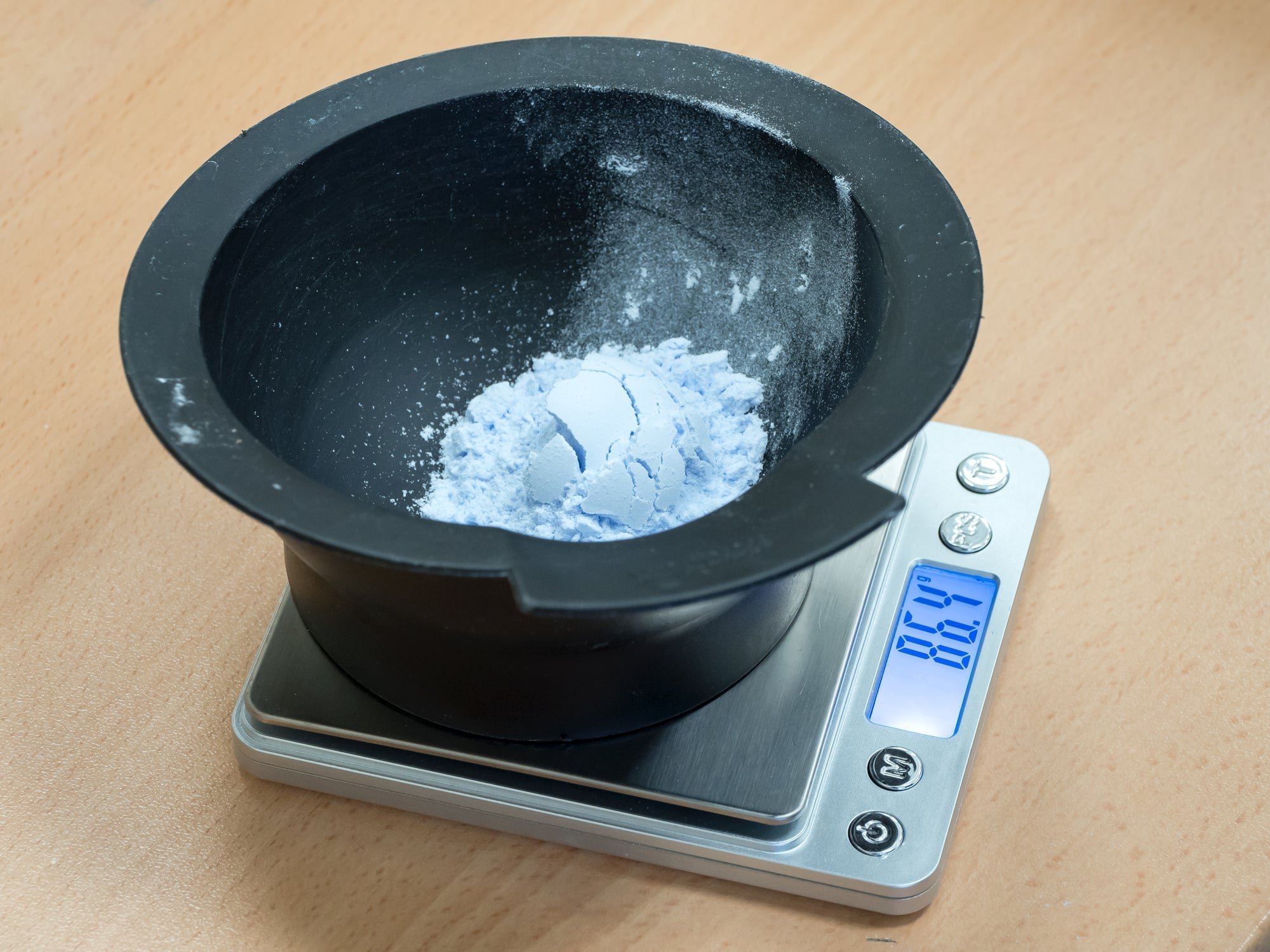Trending searches
Trending searches

How to Use Locust Bean Gum
SUBSCRIBE TO OUR BLOG
Promotions, new products, and recipes.
You may or may not have heard of this oddly named ingredient used in a number of prepared food items as a thickening and gelling agent. It called the locust bean gum. Locust bean gum has a powder-like structure and is commonly used for several culinary dishes.
Given the unique name and origin, you might wonder about the nature of locust bean gum, especially in terms of how it affects your health. Are there any locust bean gum side effects you should know about? Is locust bean gum safe?
If you are curious about such questions but don’t know much about this mystery ingredient, keep reading to discover all the details.

What Is Locust Bean Gum?
Locust bean gum is extracted from the locus tree, or the carob tree. This tropical tree has some properties that are like the ones from which chocolate is made. Locust bean gum is a fine white powder. It is added in very small quantities to different food items so as not to alter the taste of the food it is combined with.
The sweet flavor that is similar to cocoa has also led to the fruits of this tree being used in place of chocolate. Locust bean gum contains carbohydrates, proteins, fiber, sodium, and other beneficial nutrients. The most common use of locust bean gum is its use as a thickener in food products that are organic and in which there are no added preservatives.
Benefits Of Locust Bean Gum
You might be concerned about the properties of this ingredient and may be questioning is locust bean gum safe for you. In fact, there are several benefits of using locust bean gum. It is high in soluble fiber, which is great for gut health. The soluble fiber helps keep the stool soft and maintains the cholesterol level as well.
According to some studies, taking supplements containing locust bean gum may reduce blood sugar levels as well as body fat because this ingredient targets the bad cholesterol in your body.
Locust bean gum is used in a number of food recipes, animal feed and cosmetics as a method of thickening and stabilizing. It can be found in ice creams, yogurt, cheese, beverages, sauce and dressing, bakery products. The typical addition is between 0.2% and 0.5%.
What is Locust Bean Gum Used In?
Ice cream
The ability to reduce or eliminate ice crystals makes locust bean very useful in ice cream recipes. The stabilizing and water-binding characteristics making it an ideal ingredient in frozen dairy treat, improving creaminess and mouthfeel
Yogurt
In yogurts, locust bean gum helps thicken and adds to a more pleasing mouthfeel.
Jellies
It creates transparent jellies and preventing the contraction of a gel accompanied by the separating out of liquid (known as syneresis).
Cheese
In soft cheese manufacturing, locust bean gum speeds coagulation and increases the yield of curd solids.
Beverage
As an emulsifier for juices and soft drinks, locust bean gum provides transparent liquids and combines and maintains turbidity.
Sauces and dressings
When combined with agar agar or xanthan gum, locust bean gum substantially improves viscosity and texture.
Bakery
With its excellent water-holding properties, locust bean gum gives baking products a better, softer texture, while prolonging it’s the shelf life.

How To Use Locust Bean Gum?
Locust bean gum is added in small amounts to thicken the consistency of foods. It is used in ice cream to reduce the formation of ice crystal, giving a smoother mouthfeel. It is also used to as an emulsifier in products such as the density of salad dressing and to keep the oil and vinegar from separating. This ingredient is also added to the formula to make it thicker.
Locust Bean Gum Side Effects
If you have never heard of this ingredient before, it might lead you to wonder about locust bean gum side effects and whether locust bean gum is bad for you. The answer to this question is that, “yes,” locust bean gum is a safe material that is added to food, and it does not generally cause harm to you.
However, some people might be allergic to this ingredient which can lead to digestion discomfort. In case of locust bean gum allergy, you should avoid any food items containing carob-related ingredients. Besides locust bean gum allergy, some infants and young children might face some issues with taking formula in which this item was used and not mixed in the correct proportion.
Other than allergy issues for some or indigestibility concerns, there are not many locust bean gum side effects.
How Much Locust Bean Gum to Use?
Use between 0.1% to 1% locust bean gum for applications. To thicken most liquids, use 0.1% locust bean gum. As a recommendation, 0.1-0.3% locust bean gum is used for fruit filling stabilization and 0.1-0.75% with other ingredients.
Locust bean gum can be dispersed in cold water with a blender and is hydrated in water above 90°C / 194°F. Once hydrated it is typically effective at temperatures below 85°C / 185°F.
Key Takeaways
For people who don’t know about this item, it is common to wonder is locust bean gum bad for you. Locust bean gum is an organic ingredient, and it does not have any general side effects, although there might be some people who are allergic to it.
In general, locust bean gum provides benefits like dealing with bad cholesterol, high body fat, high blood sugar, and more. Make sure to consult your healthcare provider in case of any medical issue related to locust bean gum. If you wish to try locust bean gum for yourself, it is available at Cape Crystal Brands.


|
About the Author Ed is the founder of Cape Crystal Brands, editor of the Beginner’s Guide to Hydrocolloids, and a passionate advocate for making food science accessible to all. Discover premium ingredients, expert resources, and free formulation tools at capecrystalbrands.com/tools. — Ed |
Related Posts

Hydrocolloid Substitution Table: Replacing Xanthan, Guar, Agar & More

Agar Agar vs Gelatin Conversion Table: Strength, Texture & Heat Differences

Xanthan Gum Conversion Table: Exact Ratios for Sauces, Baking & Drinks
Enjoyed this post? Subscribe to The Crystal Scoop
Food-science tips, ingredient know-how, and recipes. No spam—unsubscribe anytime.
- Choosing a selection results in a full page refresh.
POLICY PAGES
QUICK LINKS
ABOUT US
Cape Crystal Brands,
- 18 Bank St., Suite 1, Summit NJ 07901.
- Phone: +1 908-273-5600
- Email: info@capecrystalbrands.com
- Tax ID: 26-2477626000
- FDA Facility # 16980627550
- Kosher Certified by: OKosher.org
Country/region
© 2026, Cape Crystal Brands | Sitemap
